Kasulu & Buhigwe, Kigoma Region, Tanzania—April 10-11, 2025
Author: Alusaria Verande Nkya.
In a groundbreaking move to transform cooking practices across Tanzanian households, 50 teachers from nine secondary schools in Kigoma underwent transformative training on electric clean cooking stoves. The initiative, spearheaded by the United Nations Industrial Development Organization (UNIDO) in collaboration with SIDO and TANESCO, aims to empower both educators and students while promoting healthier, more eco-friendly, and cost-effective cooking methods.

A Recipe for Change: Why Clean Cooking Matters
More than 80% of Tanzanian households still depend on firewood and charcoal, causing deforestation, indoor air pollution, and significant carbon emissions. But there’s good news: Kigoma is now connected to the national power grid, benefiting from the Julius Nyerere Hydropower Station’s 2,000 MW surplus. This untapped energy can power cleaner cooking solutions for 4-5 million households—a recipe for environmental and health transformation.
Blending Theory with Practice
Over the course of two days, teachers combined classroom knowledge with hands-on training. Using Electric Pressure Cookers (EPCs) and Induction Hobs, participants discovered the impressive efficiency, safety, and speed these appliances offer. Preparing staple dishes such as ugali and beans revealed how little energy these stoves consume—e.g., cooking beans in just 60 minutes used a mere 0.26 kWh, costing only Tsh 100!
This hands-on learning experience not only highlighted the cost-saving potential of electric cooking but also delved into scientific concepts like energy, power, and heat transfer, connecting the dots between science lessons and real-life applications.
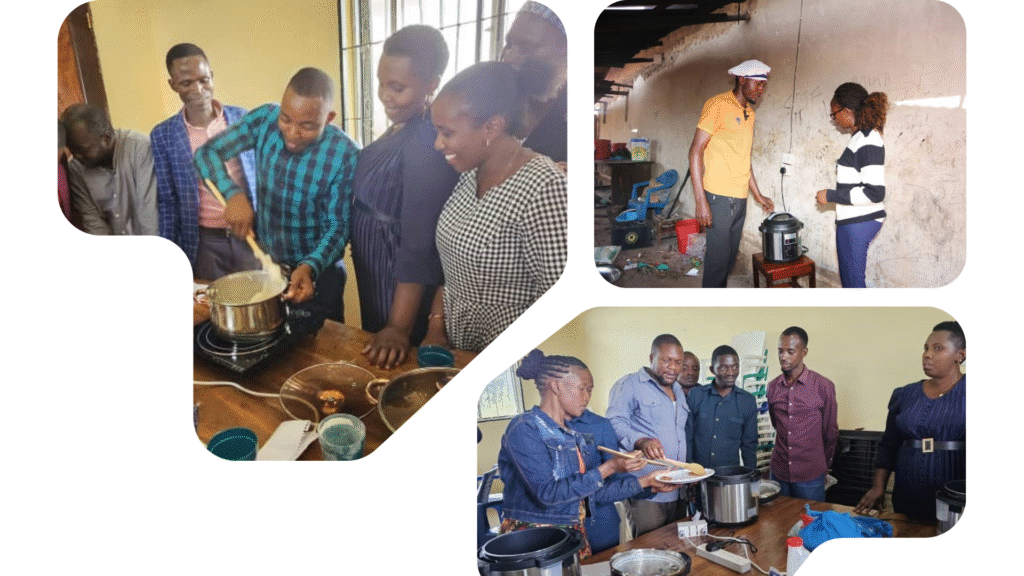
From Schools to Communities: A Ripple Effect of Change
The story doesn’t end in the classroom. On April 24, UNIDO will equip all 10 participating schools with EPCs, Induction Hobs, and energy meters, alongside detailed user manuals. Teachers will incorporate electric cooking into the science curriculum, ensuring students not only learn about sustainability but actively practice it in their lives.
Teachers will also track progress by submitting monthly reports on their students’ outreach efforts. As students spread this knowledge to their homes, this initiative is expected to ignite a region-wide transformation in cooking habits.
“Safety First!” Teachers Engage, Question, and Inspire
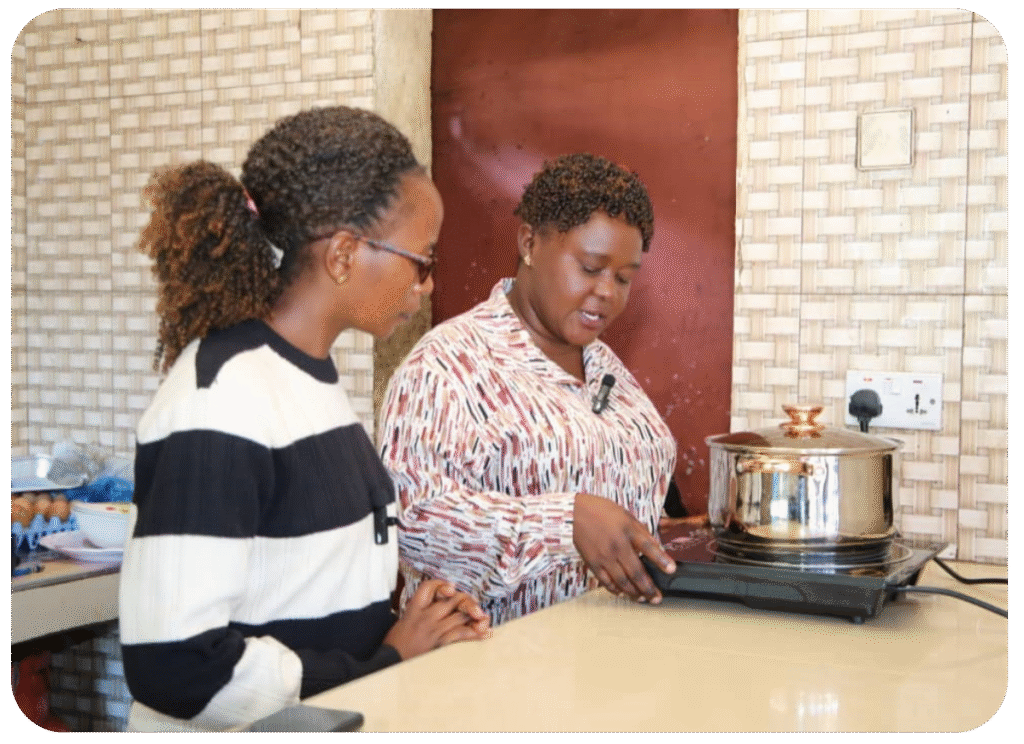
During the training, safety was a top concern for the teachers, many of whom had never worked with electric cooking appliances before. Facilitators addressed these concerns by emphasizing key safety features, such as automatic temperature controls. The response? Enthusiasm! Teachers are already calling for extended sessions to delve deeper into this critical topic.
A Unified Effort for Clean Cooking
The movement doesn’t stop here. During the training, safety was a top concern for the teachers, many of whom had never worked with electric cooking appliances before. Facilitators addressed these concerns by emphasizing key safety features, such as automatic temperature controls.
With teachers now acting as champions of this clean cooking revolution, Kigoma is setting the stage for a cleaner, healthier, and more sustainable future. This initiative is not just transforming the way we cook but it’s also showing how education and community engagement can spark meaningful, lasting change.
The Tanzanian government is urging private sector involvement in waste-to-energy (WtE) initiatives to enhance environmental conservation and energy self-sufficiency. Industries, especially those in sugar and forestry, are encouraged to convert production by-products into electricity, reducing waste and contributing to the national grid. Currently, such industries supply over 10 megawatts to the grid, with plans to increase national capacity from 3,400 MW to 5,000 MW by the end of 2025. A recent training workshop, organized by UNIDO and NM-AIST, emphasized the potential of WtE technologies in agro-industries. However, stakeholders like TPC Sugar Factory’s manager, David Shilatu, stress the need for clear policies outlining benefits for contributors to the national grid to attract more investment. This initiative aligns with Sustainable Development Goals 7 and 13, aiming for sustainable energy access and climate action.
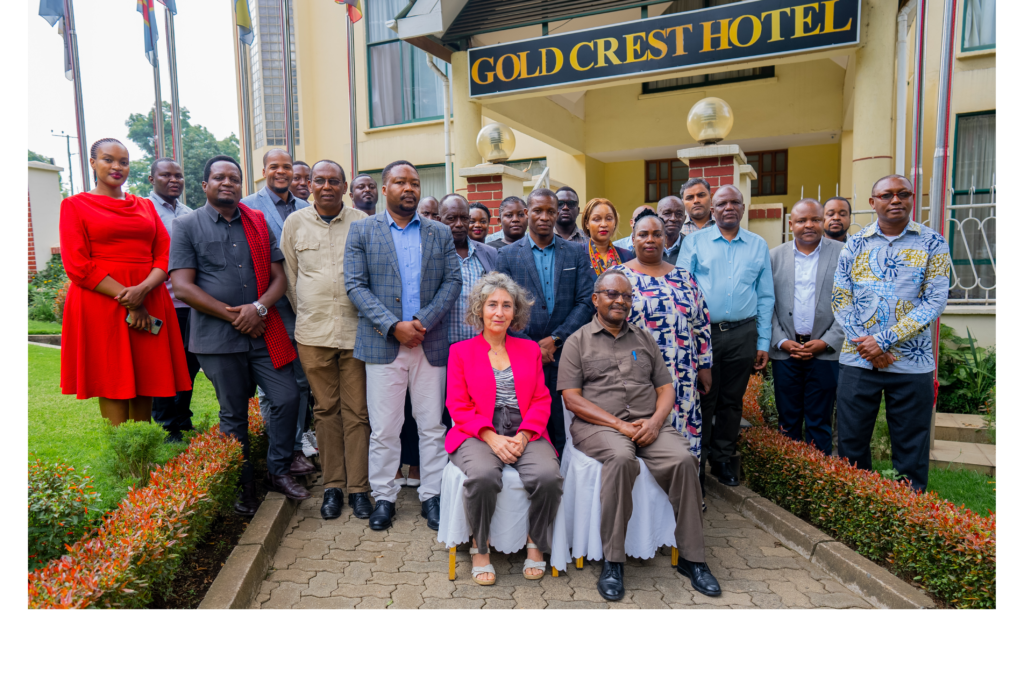
For more details, visit: https://www.thecitizen.co.tz/tanzania/news/national/tanzania-encourages-private-sector-to-invest-in-waste-to-energy-technology-4916480
The clean cooking sector in Madagascar is undergoing a major revival after years of slow development. During a workshop held during 22 and 23 October 2024 in Antananarivo, MCCI – an association of clean cooking businesses was officially launched. This event was initiated under the joint leadership of the Ministry of Energy and Hydrocarbons, Ministry of Environment and Sustainable Development, and Ministry of Industrialization and Trade. The event brought together more than 200 participants from the clean cooking sector. *The United Nations Industrial Development Organization (UNIDO), the United Nations Development Programme (UNDP), Sustainable Energy for All (SEforALL), the World Food Programme (WFP) and World Wildlife Fund, supported the event.
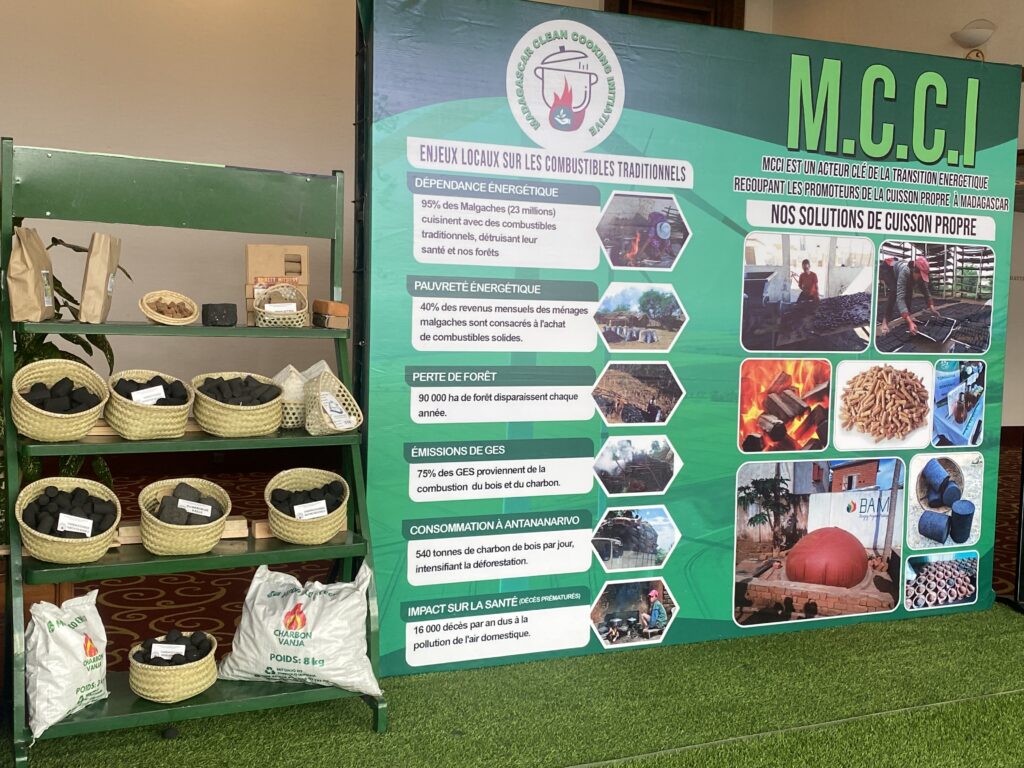
Madagascar is facing a unique energy crisis, with around 80% of total energy consumption based on biomass, 68% of which comes from firewood and 10% from charcoal. This dependence on traditional unsustainably harvested biomass fuels is having a serious impact on the environment, contributing to alarming levels of deforestation. According to forecasts, 25% of Madagascar’s forests could disappear by 2030, due to demand for wood and charcoal for cooking. Only less than 12% of the population uses clean cooking technologies or improved stoves, leaving the majority of Malagasy people dependent on traditional cooking methods, with negative impacts on the environment and health. Traditional cooking methods present a major risk to public health due to Indoor Air Pollution causing around 21,000 deaths a year, or 10.7% of the country’s annual deaths, a figure that includes many children under the age of five. Indeed, Indoor Air Pollution remains the leading cause of child mortality in the country, due to acute respiratory infections caused by smoke generated when cooking with wood or charcoal.
Madagascar Clean Cooking Initiative (MCCI) is a national association of 48 companies from 13 regions of Madagascar. This initiative, which was set up under the guidance of UNIDO, promotes modern cooking technologies such as green sustainable charcoal, briquettes, biogas, bioethanol, and e-cooking. The launch was formalized by the signing of a quadripartite agreement between the Ministries of Energy, Environment, and Industry and the MCCI, sealing a strategic partnership to accelerate Madagascar’s just energy transition.
The MCCI initiative is part of the ‘Technical assistance project for the development of a national clean cooking and reforestation programme for Madagascar,’ implemented by UNIDO with financial support from The OPEC Fund for International Development.
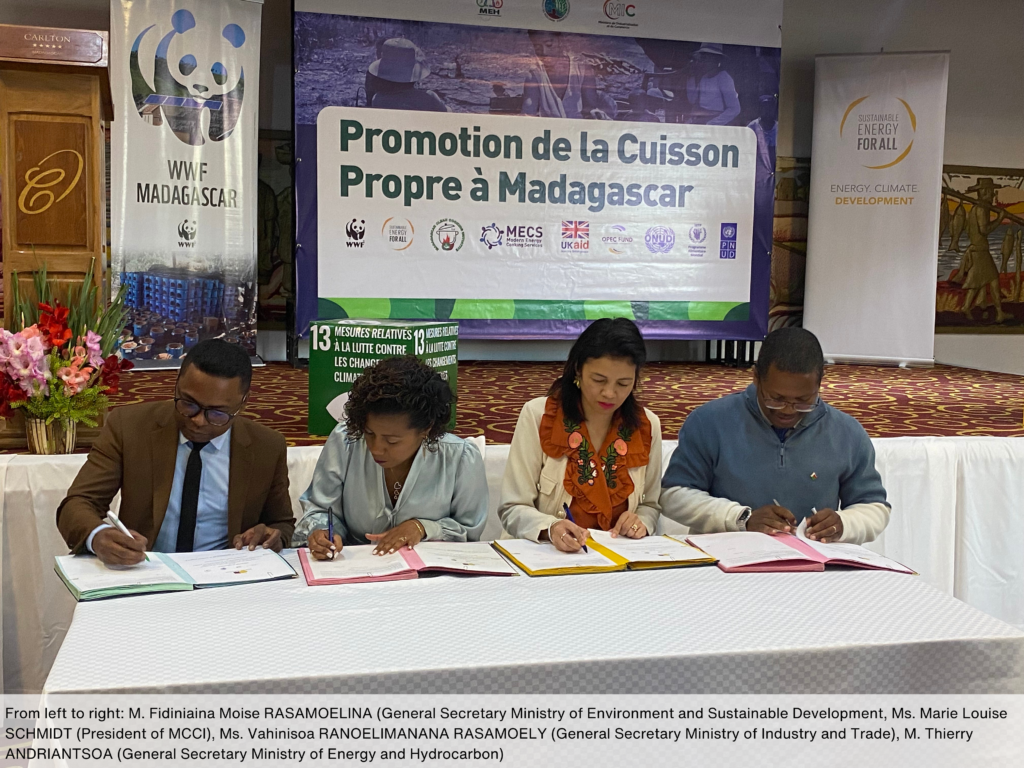
The event served to lay solid foundations for the future National Clean Cooking Policy, a project currently being developed by the Malagasy government. The policy envisages greater access to affordable modern cooking fuels technologies for Malagasy households by 2030, in line with the objectives of the New Energy Policy (2015) and the Nationally Determined Contributions (NDCs). The workshop also enabled participants to share best practices and articulate challenges in the sector, while highlighting the importance of public-private partnership to accelerate the adoption of modern clean cooking technologies.

Mrs. Marie Louise SCHMIDT, President of the MCCI, expressed an ambitious vision, which is to make Madagascar a model for clean cooking in Africa, thereby reducing deforestation, protecting the environment and public health, and improving the well-being of the Malagasy people – particularly women and children.
The launching of MCCI generated enthusiasm among clean cooking entrepreneurs. Since its launch, the Initiative has received twenty new membership applications.
This article is written by Jean Luc Randriamampianina.
“Imagine rural schools in Tanzania where students no longer waste time collecting firewood for cooking in schools. Instead, they enjoy nutritious meals prepared using eco-friendly stoves and non-carbonized briquettes from Hanny G. Investment”
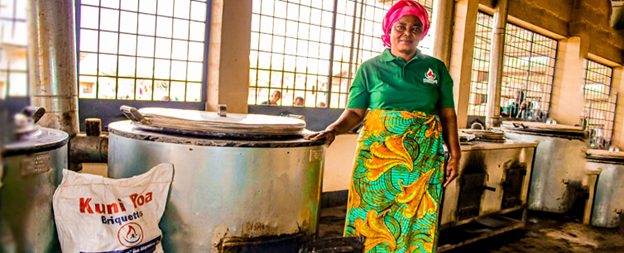
UNIDO is promoting the increased application of waste-to-energy technologies in agro-industries in Tanzania with financial support from the Global Environment Facility (GEF) and in partnership with several key national stakeholders in Tanzania – including the Ministry of Energy and the Vice President’s Office-Division of Environment (VPO). The project has established Bioenergy Incentive Fund (BIF), managed by Tanzania Development Bank (TIB) to facilitate scaling of bioenergy projects. Hanny G. Investment Company Limited is one of the beneficiaries of this program.
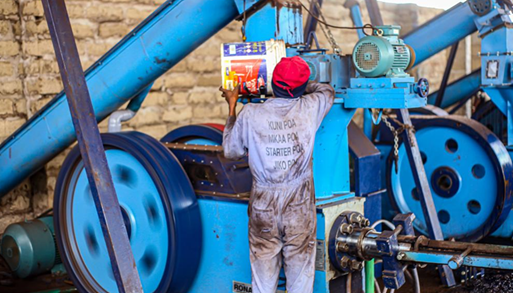
Hanny G. Investment Company Ltd is a women-led startup in Tanzania producing clean and affordable cooking fuels from bio-Waste and fabricates efficient cooking stoves for schools, food vendors, and households in Tanzania. The company has over 8 years of experience with over 5,300 institutional cookstoves using the briquettes were successfully disseminated and distributes over 18,720 tons of briquettes per year.
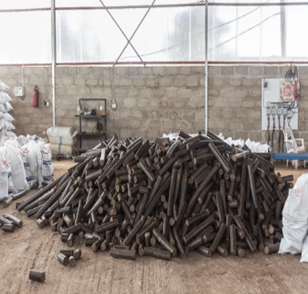
Currently, the company operates in 17 regions of Tanzania with over 500 schools and institutions as customers. The schools and institutions that shifted from firewood had saved up to 45% of their monthly expenditure for cooking fuel. Others have shifted from the use of gas to briquette due to high cost and maintenance. By switching to briquettes, these institutions are now saving over 25% on fuel costs. This reliable and clean cooking fuel is available year-round, solving the problem of finding and gathering firewood by students especially during the rainy season. The children no longer spend time gathering or chopping firewood, allowing them to focus more on their studies and personal development. With an average of 500 students in each institution and 30 staff, the company has been able to benefit more than 275,000 individuals across the country, ensuring they have clean cooking fuel and a healthy environment. Due to the high volume of bio waste (raw material), the company is looking forward to being able to recycle up to 36,000 Tons of waste per year by the end of 2025.
This article was contributed by Alusaria Verande Nyka.
Kigoma, located along the shores of Lake Tanganyika in western Tanzania, is embracing a significant shift in its cooking methods, driven by the UN Kigoma Joint Programme (KJP) II. Led by the United Nations Industrial Development Organization (UNIDO), the initiative introduces energy-efficient electric cooking to households, promising both environmental and economic benefits.
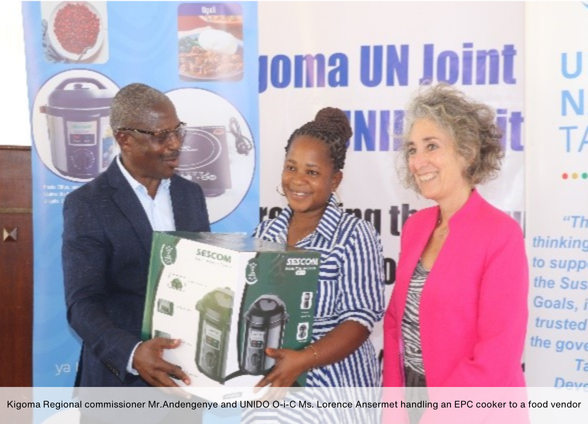
For many households in Kigoma, cooking has long relied on charcoal and firewood—fuels that contribute to deforestation and indoor air pollution. UNIDO’s initiative aims to change this by introducing affordable, efficient electric cooking appliances. This shift aligns with UNIDO’s global mission to support sustainable development, particularly in achieving Sustainable Development Goal 7: access to affordable, reliable, and clean energy.
Kigoma was chosen as a starting point for this initiative due to its unique challenges. Limited access to clean energy and a heavy reliance on biomass have led to both environmental degradation and serious health concerns, such as respiratory illnesses caused by indoor smoke. With the national electricity grid expected to expand into the region by November 2024, Kigoma presents a timely opportunity for introducing electric cooking solutions.
The electric cooking project in Kigoma is multi-faceted, focusing on:
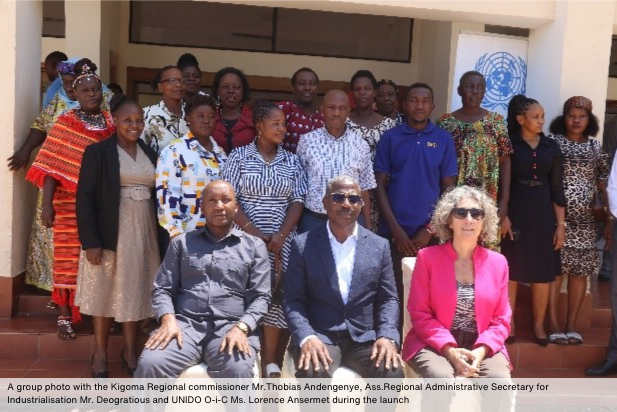
Though it has launched in Kigoma, the initiative plans to expand to neighboring areas like Kakonko and Kibondo. UNIDO envisions creating a sustainable model that can be replicated across Tanzania, accelerating the shift from traditional biomass to cleaner, more efficient electric cooking.
In conclusion, the electric cooking initiative marks a crucial step in Kigoma’s journey towards a cleaner, healthier future. Through the KJP II, UNIDO is empowering communities with access to modern, sustainable energy solutions, setting an example for the rest of Tanzania.
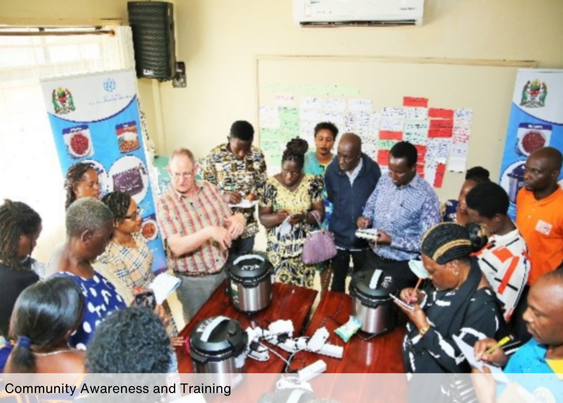
Azam Bakhresa Group of companies in Dar es Salaam has launched a campaign to bring clean cooking solutions to 10,000 women food vendors across Tanzania. In collaboration with the United Nations Industrial Development Organization (UNIDO), Bakhresa Group aims to distribute cookstoves from UNIDO’s bioethanol cookstove promotion project.
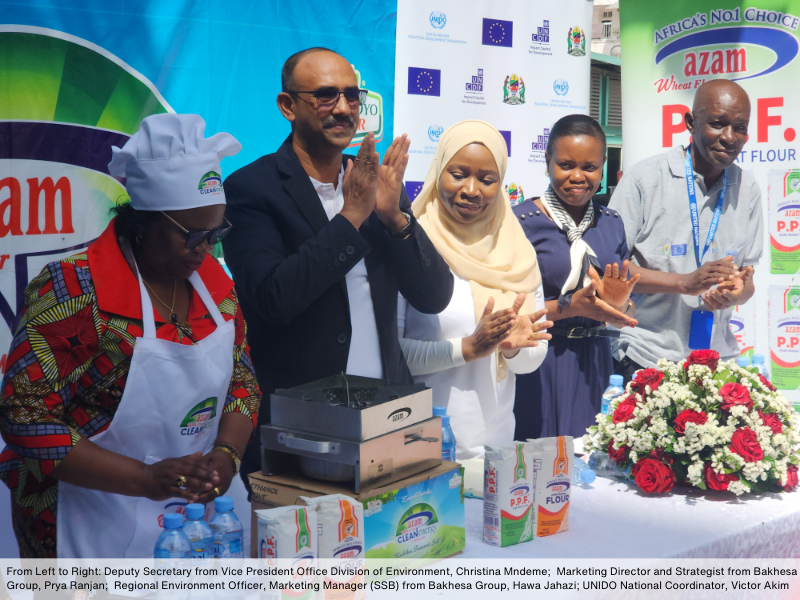
At the launch event, UNIDO National Energy Expert, Victor Akim, highlighted that the project is being implemented in partnership with the Vice President’s Office–Division of Environment, the Ministry of Energy, and UNCDF, with funding from the EU Delegation. The event took place on September 19, 2024, at the Bakhresa Azam offices in Dar es Salaam
At the launch event, Hussein Sufian, Corporate Affairs Director of the Said Salim Bakhresa (SSB) group, announced that the campaign aims to combat climate change. In partnership with the UNIDO and a gas distributor, the initiative will distribute ethanol stoves nationwide, beginning with a donation of 500 stoves in Dar es Salaam.
With nearly 80% of households relying on charcoal and firewood – leading to widespread deforestation – Sufian emphasized the need for affordable alternatives like ethanol. The campaign aligns with the government’s recently launched 10-year National Clean Cooking Energy Strategy, which includes an estimated budget of $1.8 billion dedicated to transitioning to cleaner energy. President Samia Suluhu Hassan highlighted the risks associated with unsafe cooking methods and called for the integration of this strategy into Tanzania’s Vision 2050.
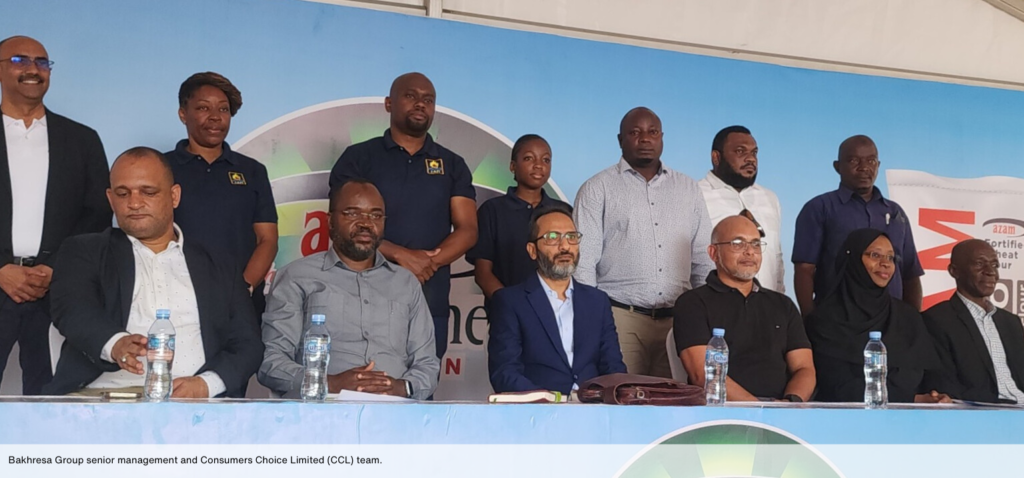
Bakhresa Group is an industrial company based in Tanzania, East Africa. Owned by an entrepreneur and Tanzanian billionaire Said Salim Bakhresa. He owns the Bagamoyo Sugar Factory located in Bugamova District, in the Pwani Region of Tanzania.
For more information regarding the Bakhresa group please click here.